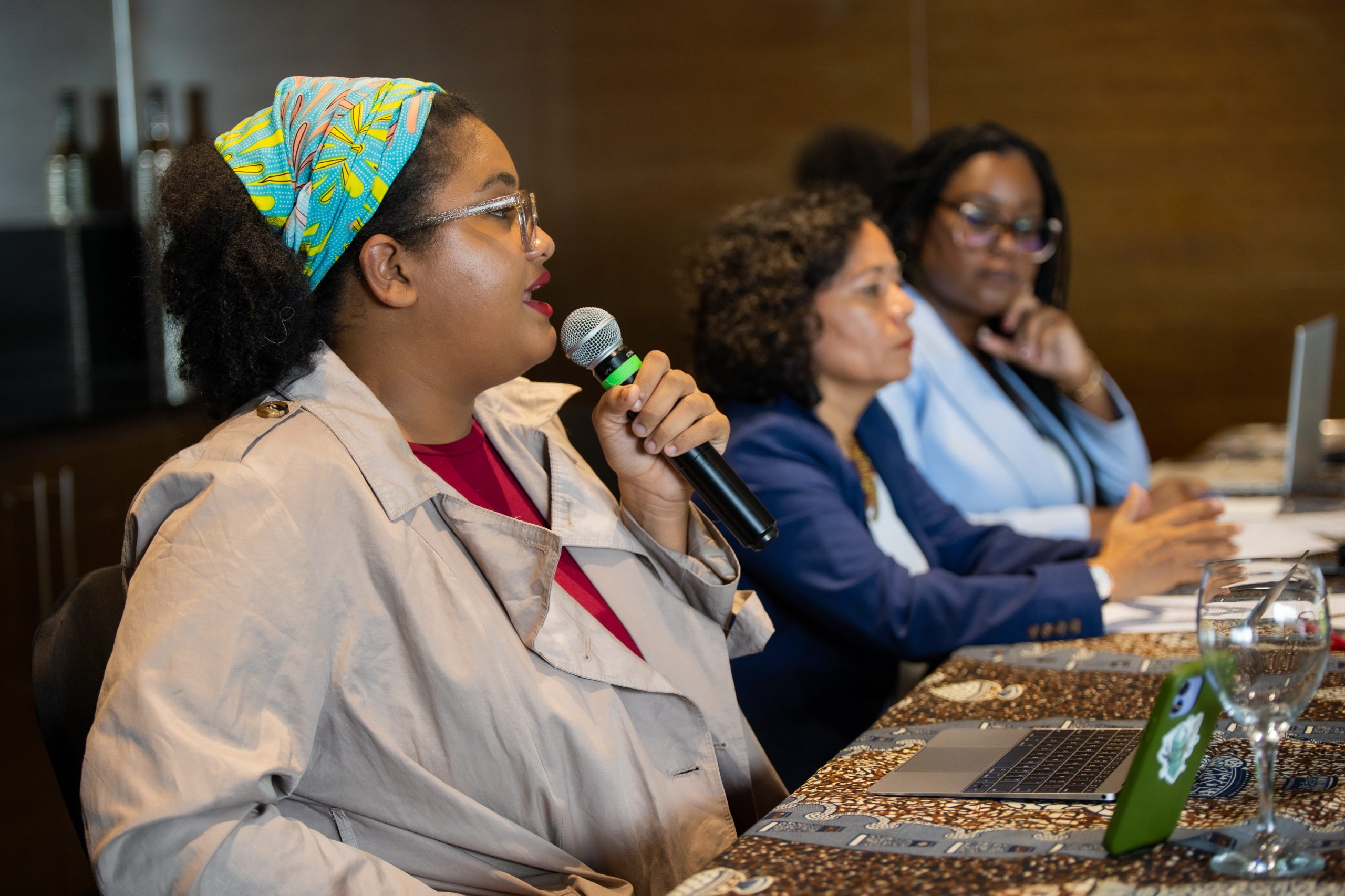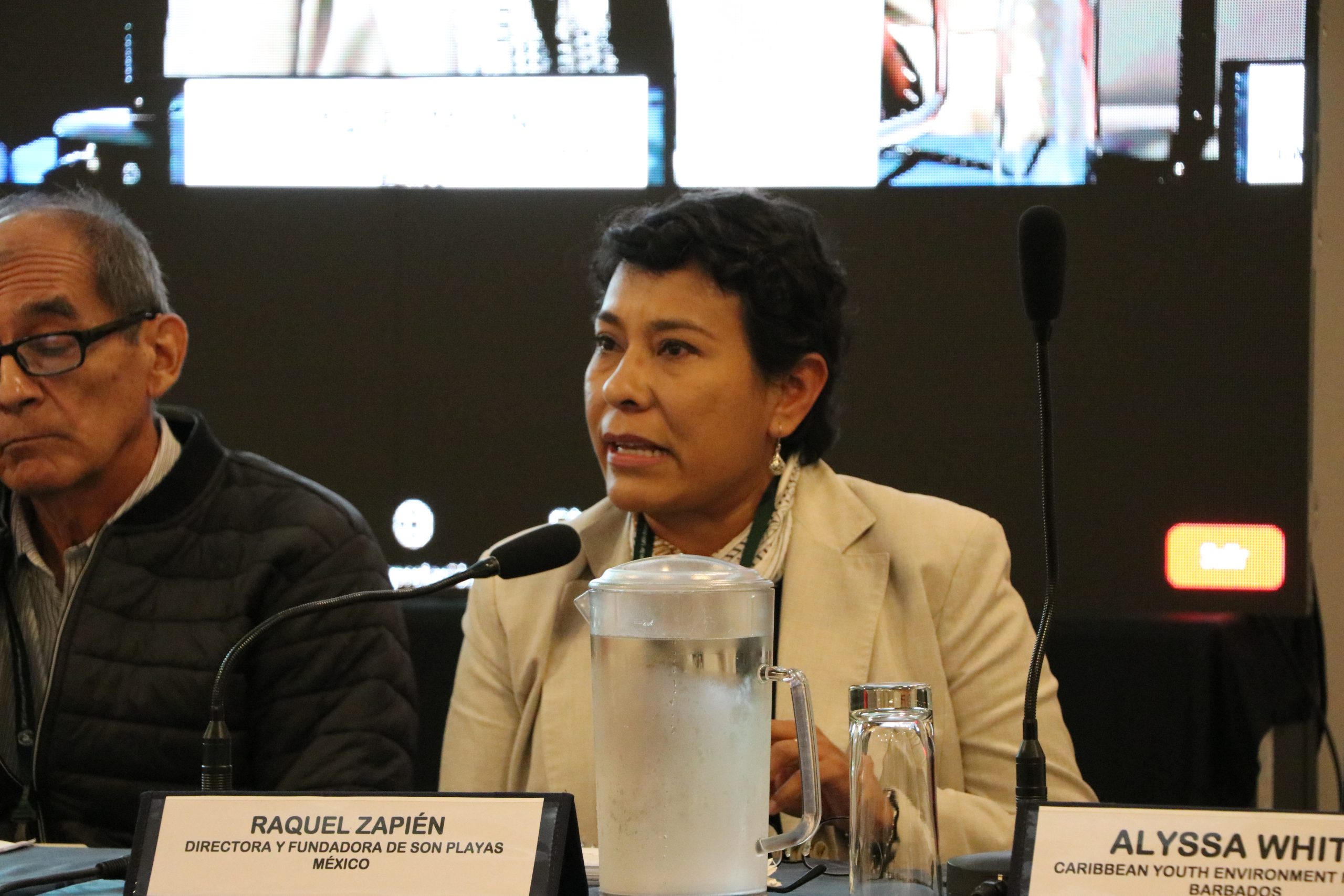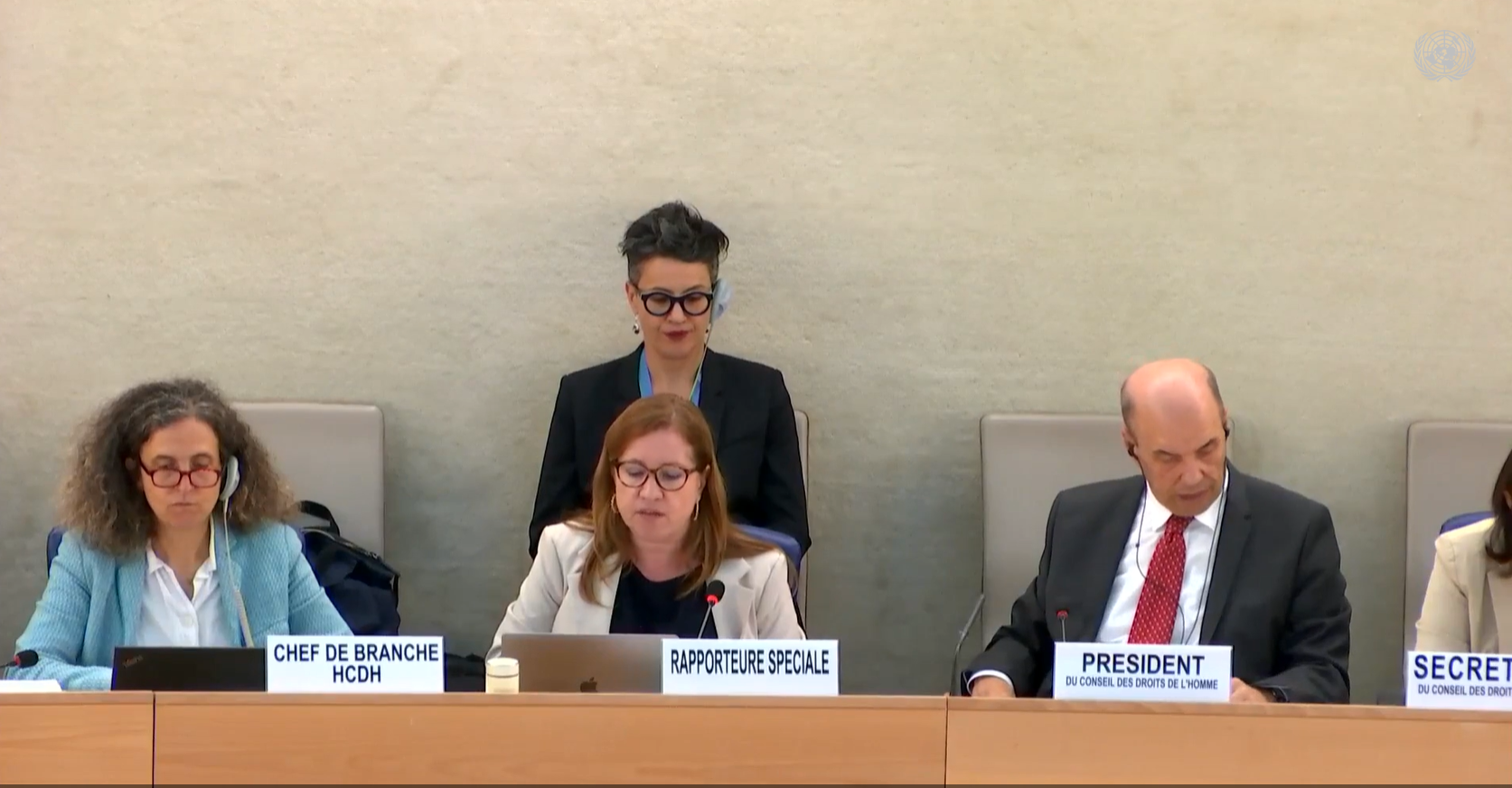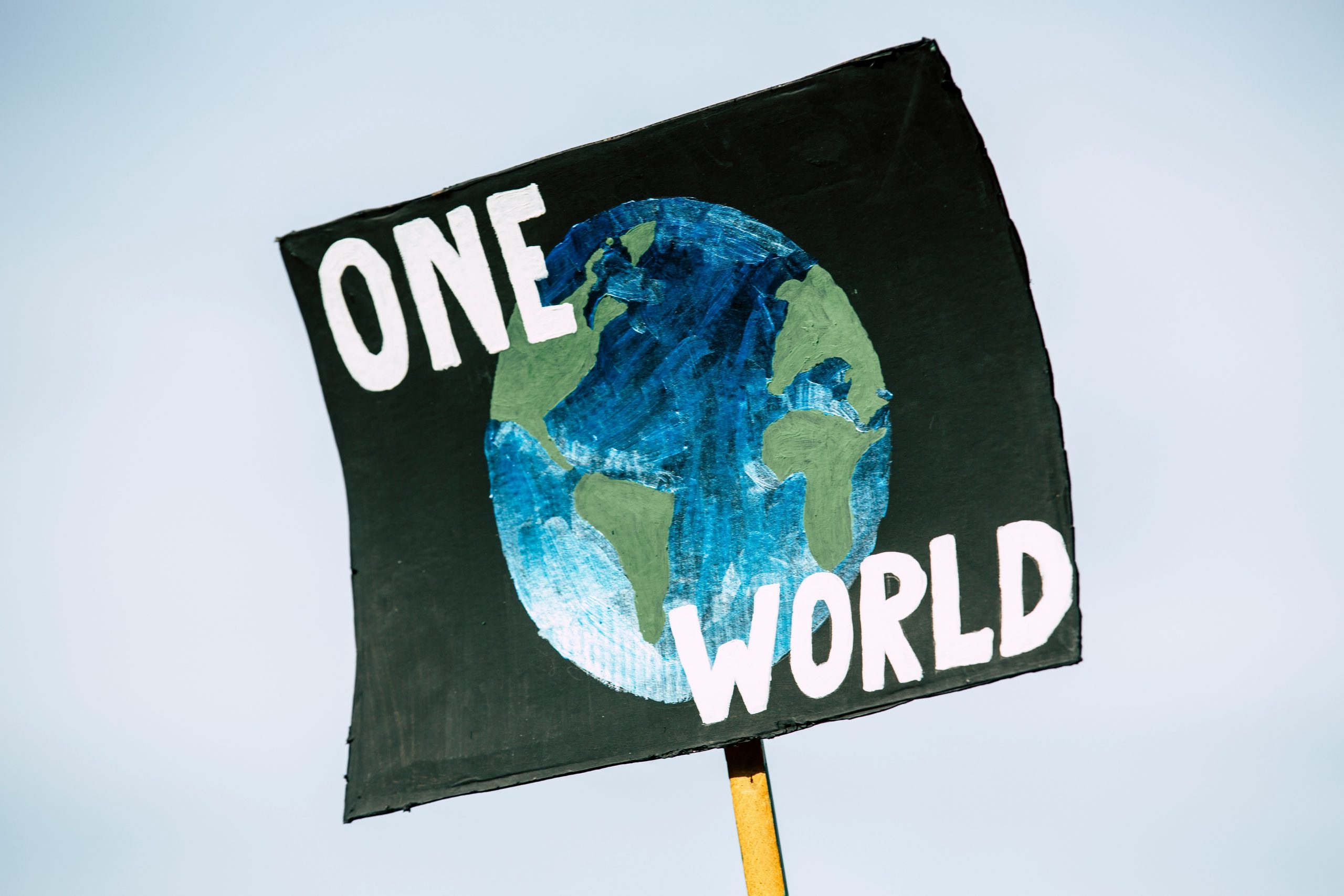Raquel Zapien Osuna, from Sinaloa, Mexico, is the Director of ‘Son Playas’, a digital platform specialising in local environmental journalism. Recently she spoke at the First Forum on Human Rights Defenders in Latin America and the Caribbean in Quito, Ecuador, on the vital role of environmental journalists.
The Forum was held in the context of the Escazú Agreement. The Agreement requires governments to enable the work of environmental defenders and to prevent and investigate attacks against them. How should this best be done? What are the risks they face? Here are highlights of what Raquel had to say:
‘I believe that journalism can help ensure that the Escazú Agreement assists environmental defenders. Why journalism? Why should we be speaking about journalism? Firstly, because journalists help people exercise their right to information and that information can encourage citizen participation and collective action. Without collective action, change is not possible. Many issues and many problems are made invisible but journalism helps make them visible.
Journalists contribute to the social good. What we do is a common good, something being limited, silenced and attacked in many ways. These restrictions and aggression against journalists have a direct, negative effect on people in ways that are frequently not seen or acknowledged.’
Killings and attacks:
‘In Mexico, 157 journalists have been killed since 2000, most probably in connection with their work, according to Article 19. To these killings you must add all of those colleagues who have been disappeared, displaced, who have had to leave their families, their homes, from where they reside to escape the intimidation and the violence that follows journalists here in Mexico and throughout Latin America. Mexico is one of the most dangerous and deadly places on Earth to be a journalist.
It is also a deadly place for environmental defenders. Global Witness documented the killing of 1733 environmental defenders globally in the last decade, 154 of those in Mexico.’
Local journalism: essential and precarious
‘I want to shine light in particular on risks faced by journalists in small communities. I want to speak for the journalists on the street, those who travel through neighborhoods, villages, those who have direct contact with local problems and with local people.
Being a journalist carries a high level of responsibility and also involves many risks, and those risks increase if you are a local journalist and if you cover small communities. They increase even further if you cover the environment, because we know there are economic and political interests behind environmental crimes.
They find us – local journalists – more easily on the street, in the market, in our children’s school, in our homes. At the local level, we feel the effects of hate speech, discreditation and stigmatisation, all uttered and promoted by those in power. We – the local, environmental journalists – are the weakest link. That is why I speak today, on behalf of my colleagues and myself.
There is another shadow over those of us who dedicate ourselves to journalism. It is perhaps the greatest threat of all: precariousness. We do not have the resources to provide coverage, to travel, or even, at times, to make a phone call. There is no support to carry out investigations, or very little.
This precariousness has been normalised. It doesn’t only limit our reach but has an impact on the quality of information that we are able to provide people. Due to all the threats we face, in my country and in my State, there are zones of silence where no journalists operate due to the risks they would face; where no journalists amplify the voice of communities of the highlands due to the risks they would face, where there are no guarantees for journalists to work freely or for defenders to defend the environment.’
A call for more, better protected local journalism:
‘I sense that now, more than at any time in the history of humanity, we need more and better journalism. We need more and better environmental journalism as we experience environmental crises. In particular we need more, much more, local environmental journalism because local journalism can help clarify all those issues that appear complex, distant and difficult to understand. Through journalism, many environmental problems can be understood through the everyday – through what people live every day. That is when local journalism generates empathy and resonates with audiences. This is why local journalism can have great impact.
It is essential that we protect environmental defenders. It is also essential that we protect the messengers.‘
Download as PDF




